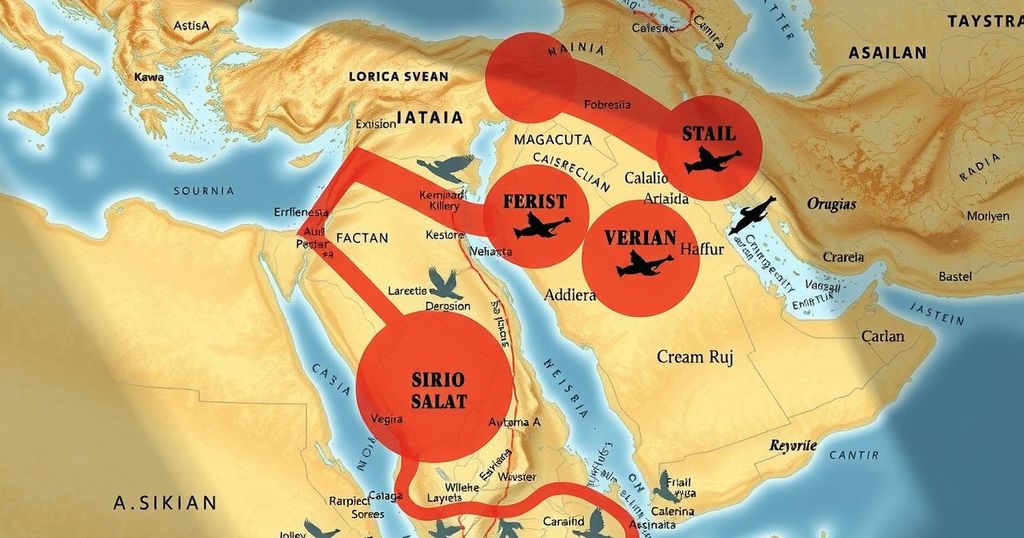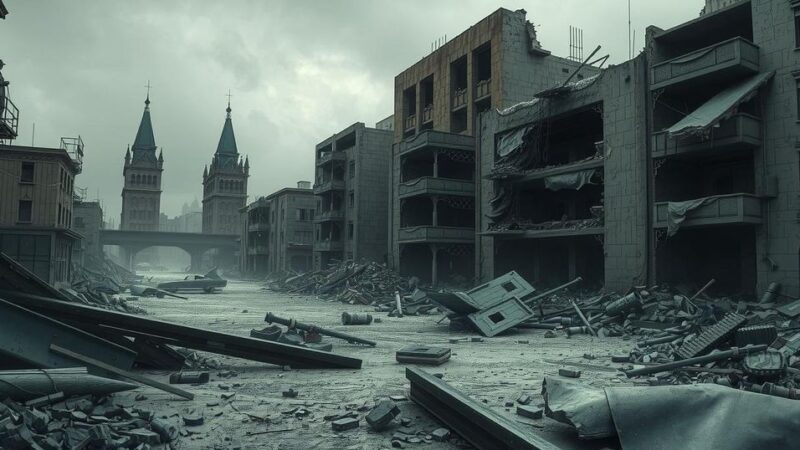The Middle East remains embroiled in extensive crises, with Iran indicating a readiness for indirect negotiations with the U.S. amidst persistent military actions in Gaza and Yemen. The humanitarian situation in Gaza is dire, with a rising death toll and urgent appeals for aid. Domestically, Israel’s political landscape reflects the influence of far-right elements while Lebanon grapples with internal divisions. In Turkey, public dissent against political repression highlights broader democratic challenges.
The Middle East remains engulfed in crises, primarily stemming from longstanding political, security, economic, and social issues. Recent developments indicate a potential for diplomatic engagement, particularly with Iran expressing a willingness to enter indirect negotiations with the United States regarding its nuclear program and regional security concerns. This engagement may lead to significant breakthroughs in the ongoing turmoil affecting the area.
Iranian Foreign Minister Abbas Araghchi confirmed that Iran had responded to a negotiation invitation from President Trump through the United Arab Emirates concerning Tehran’s nuclear aspirations. However, Iran maintains its stance against direct discussions while under severe pressure. The U.S. had previously withdrawn from the 2015 nuclear agreement, reinstating sanctions that had previously been lifted in exchange for curtailing Iran’s nuclear advancements.
Simultaneously, tensions escalate as Yemeni missiles continue to strike Israeli territory amid Israel’s ongoing military actions in Gaza. Israeli Prime Minister Benjamin Netanyahu solidifies his authority by aligning with hardline allies while U.S. airstrikes against Yemen fail to deter Houthi forces committed to Palestinian support. These missile strikes have adversely affected civilian life in Israel, leading to emergency precautions and halting air traffic at Ben Gurion Airport.
The humanitarian situation in Gaza remains dire, with the death toll exceeding 50,000 and severe shortages of essential supplies for the civilian population. Continued airstrikes and blockade conditions exacerbate the crisis as hospitals face resource depletion and urgent appeals for international aid are met with resistance from Israel’s Supreme Court. This reflects a commitment to national sovereignty over humanitarian concerns.
Internally, Netanyahu’s coalition faces scrutiny, with growing concerns about the increasing grip of far-right influences on Israeli democracy. As Netanyahu maneuvers to maintain power amid escalating conflict, analysts warn that the ongoing hostilities may distract from pressing political reforms and civil unrest.
In Lebanon, a recent political development involved the contentious appointment of a new central bank governor amidst fears of governmental instability. Despite parliamentary approval, divisions remain evident, with Prime Minister Nawaf Salam opposing any normalization discussions with Israel. The U.S. is reportedly advocating for a compromise with Lebanon that would limit Hezbollah’s capabilities.
Israel’s military operations extend into southern Syria, where armed confrontations with local youth have occurred, emphasizing the volatile security environment and Israeli strategic interests in preventing warlike formations near its borders. Concurrently, airstrikes aim to eliminate perceived military threats in northern Syria, targeting significant military installations.
Domestically, Turkey faces widespread protests against President Erdoğan following the arrest of opposition figure Ekrem İmamoğlu, reflecting political tensions within the nation. Opposition leaders and organizations have condemned the move as part of a wider crackdown on democratic dissent, prompting mass protests and arrests that have drawn international attention.
The persistent crises in the Middle East, compounded by military confrontations and political turmoil, continue to challenge the stability of the region. Iran’s willingness to negotiate, Yemeni missile threats, and the humanitarian catastrophe in Gaza are significant factors to watch. Moreover, internal Israeli politics, Lebanese governmental fragmentation, and turmoil within Turkey illustrate the multi-faceted nature of regional and domestic conflicts, underscoring ongoing struggles for power and the quest for diplomatic solutions.
Original Source: arabamericannews.com






